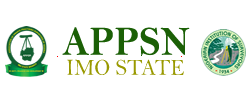
Navigating Land Ownership Laws in Nigeria: What Every Surveyor Should Know
Understanding Nigeria’s land ownership laws is essential for surveyors, property developers, and anyone involved in real estate. These laws, which regulate ownership, usage rights, and property development, are central to preventing disputes and ensuring lawful land transactions.
Overview of Nigeria’s Land Ownership System
In Nigeria, the Land Use Act of 1978 remains the primary law governing land ownership. This Act vests all land within a state’s boundaries in the hands of the state governor, who holds it in trust for the people. It means that while individuals and organizations can have land use rights, the state retains ultimate ownership and can grant rights for occupancy, usage, and development.
Types of Land Ownership Rights
- Statutory Right of Occupancy (SRO)
- Granted by the state governor, this right applies mainly to urban lands. It allows holders to occupy and develop the land for a specified period, typically 99 years, with rights to renew.
- Customary Right of Occupancy (CRO)
- Issued for lands in rural areas, these rights recognize traditional or communal land use practices. However, the state must also approve this type of occupancy for legal acknowledgment.
- Leaseholds and Freeholds
- A leasehold provides temporary use rights, often based on contract terms between private entities. Although not common, freeholds provide outright ownership, though limited due to the Land Use Act’s stipulations.
Why Surveyors Need to Know Land Ownership Laws
Accurate land surveys are critical in defining boundaries and ownership, and they help ensure compliance with Nigeria’s land laws. Without a clear understanding of these laws, surveyors could inadvertently cause legal issues, leading to disputes or invalid transactions. Here’s why surveyors need to be familiar with these laws:
- Boundary Accuracy and Dispute Resolution
- Accurate surveying ensures correct boundary identification, which is essential in upholding legal property descriptions. It reduces disputes between landowners and helps in formalizing titles or deeds.
- Facilitating Land Title Registration
- Surveyors often play a key role in preparing documents needed for land title applications. By understanding occupancy rights, they can provide accurate and compliant surveys required for certificate processing.
- Complying with Local and Federal Regulations
- Surveyors work closely with state land registry offices. Understanding local land policies can ensure that survey reports are compliant, expediting processes like land transfers, sales, and leases.
- Environmental and Zoning Compliance
- Many states in Nigeria have specific zoning laws and regulations for land use, especially in urban areas. Surveyors should understand these restrictions to ensure that land is appropriately categorized and used.
Challenges in Nigeria’s Land Ownership System
Nigeria’s land ownership system is complex, and surveyors must navigate several common challenges:
- Bureaucratic Delays: The Land Use Act requires that the governor approves many transactions, which can delay processes and lead to backlog in some state offices.
- Unclear Ownership: Many rural lands still operate under customary law, where ownership boundaries are informal. This creates potential conflicts and inaccuracies in surveying.
- Overlapping Rights: Cases where multiple people have been given rights to the same parcel of land are common due to poor record-keeping, leading to disputes.
Best Practices for Surveyors Working with Land Ownership Laws
To navigate Nigeria’s land ownership laws effectively, surveyors should adopt best practices that enhance accuracy and compliance:
- Engage with Local Communities
- Understanding local customs and working with community leaders can provide insight into informal ownership boundaries. It also builds trust, which can be invaluable in verifying boundaries.
- Maintain Up-to-Date Knowledge of Regulations
- Land laws and policies can change. Surveyors should stay informed about updates to the Land Use Act and any new zoning or development regulations within the states they operate.
- Document Thoroughly
- Accurate documentation, from measurements to maps, is crucial. This documentation provides legal proof of boundaries and compliance with all applicable regulations.
- Collaborate with Legal Experts
- For complex cases involving customary lands or disputed boundaries, consulting legal professionals can help in interpreting the law and providing clients with reliable, lawful advice.
The Future of Land Ownership in Nigeria
With the increase in digital land registry initiatives, Nigeria’s land ownership system is likely to become more accessible and transparent. However, as the field modernizes, the role of surveyors in accurately determining and documenting land ownership boundaries will remain indispensable.



